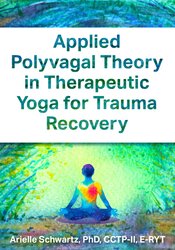Join world-renowned Traumatologist Dr. Arielle Schwartz and become a certified trauma professional
Many therapists are both intrigued and perplexed by Polyvagal Theory.
While it can seem overly complicated, the fact is…
Polyvagal theory is the key to resolving trauma stored in the body.
…and thousands of therapists like you are already using it as a scientifically validated roadmap to relieve clients from trauma, PTSD, painful memories, and more.
Don't let intimidating neuroscience keep you away from learning this powerful approach…
This course not only makes it easy for you to learn practical Polyvagal techniques you can use in session tomorrow, but you'll also set yourself apart as a certified trauma expert!
You'll begin learning with neuropsychologist Dr. Sherrie All, who makes learning Polyvagal Theory friendly and gives you skills you can immediately use — like co-regulation, movement, and breath techniques.
Then, you'll join Dr. Arielle Schwartz, whose work has been praised by Polyvagal Theory developer Dr. Stephen Porges. In this course, Arielle shares key techniques from her decades of experience mastering polyvagal theory to deepen your work with bilateral stimulation, yoga-based practices, ways to gently overcome clients' resistant inner parts, and much more!
Whether this is your first time hearing about Polyvagal theory or you've studied it before, this course is your opportunity to give your clients the gift of safety, calm, freedom from body-based pain, and grounding skills for lifelong relief.
…And since these techniques work with every treatment orientation you can use them right away, so don't wait!
Start your journey to becoming a trusted trauma expert today with Polyvagal Theory… and become a Certified Clinical Trauma Professional!





